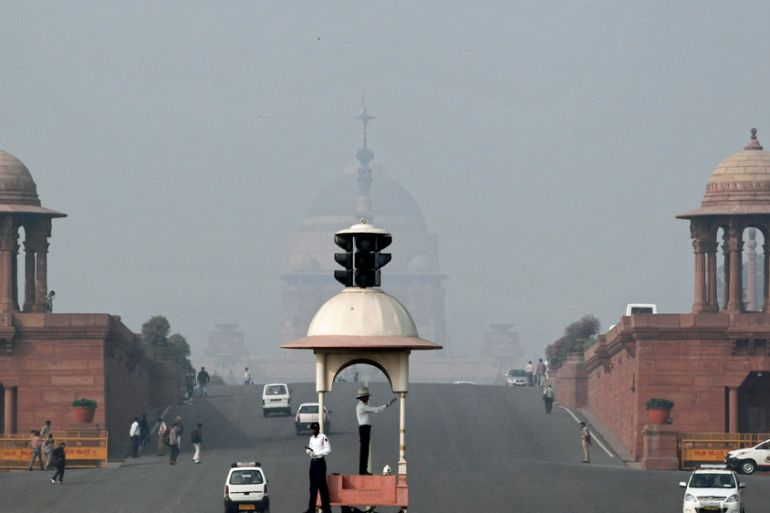Battling deadly air pollution on World Environment Day
Four Indian cities top the UN’s most-polluted list, shaving 3.2 years off of life expectancy.

Air pollution is the world’s biggest environmental problem and New Delhi has the highest levels of all cities around the globe, according to the World Health Organization, with 3.2 years of life lost for the average Indian because of it.
India has the four most polluted cities in the world, WHO said in a report, findings that were vehemently challenged by India’s government.
Keep reading
list of 4 itemsAfter the Hurricane
World’s coral reefs face global bleaching crisis
Why is Germany maintaining economic ties with China?
As the UN marks World Environment Day on Friday, WHO has highlighted the problem of deadly air pollution and the need to tackle it to save lives. About eight million people die each year globally because of poor air quality – a figure that continues to rise.
India has 13 of the 25 most-polluted cities in the world with New Delhi taking the top spot. However, AB Akolkar, secretary of the Central Pollution Control Board of India, disputed the research.
|
|
| Earthrise – Can growth be green? |
“Delhi is not the dirtiest … certainly it is not that dangerous as projected,” Akolkar was quoted as saying.
India’s Prime Minister’s Office did not respond to Al Jazeera’s request for comment.
Agree to disagree
Ashish Jain, a New Delhi resident and director of the Indian Pollution Control Association, agreed with the WHO report’s findings.
“I am suffering from allergic asthma due to dust and temperature. We cannot stand five minutes at the traffic signal… You can feel itchiness in your eyes if you open the window of your car,” Ashish told Al Jazeera.
Air pollution is a mixture of solid particles and gases in the air, including car emissions, chemicals from factories, dust, and pollen. The smaller the size of the particulates, the more hazardous it becomes.
For every 100,000 people, 155 die in India of chronic respiratory disease, the highest rate in the world. A separate study concluded that air pollution has reduced India’s life expectancy by 3.2 years.
Seeing the affects of pollution on Indians led Ashish to form his own NGO to educate people about environmental issues. His NGO also offers ecologically friendly alternatives to waste management in India, providing door-to-door waste collection services for more than 100,000 households.
Ninety percent of the waste collected is then recycled, he said.
Ashish criticised the Indian government’s environmental pollution efforts, saying while there are policies in place, implementation and enforcement remain problematic.
But he also blamed ordinary citizens for ignoring the problem.
“Everybody is a culprit, even me because I am not reducing my demands,” Ashish said. “We are not using public transport as much as we should … everybody just talks, but nobody is taking responsibility… We are playing a blame game … every citizen should take this responsibility seriously.”
Ashish said even small things such as carpooling and avoiding diesel vehicles can help. “People love using diesel just to save money, even though they know the effects of pollution. If we decide not to buy diesel-run vehicles we can reduce pollution,” he said.
Taking action
|
|
| New Delhi bans old vehicles to curb pollution |
United Nations Environment Programme is working closely with the Indian government to support a low carbon transport pathway in India with a three-year, 2.49 million euro ($2.8m) project.
“[This will] not only mitigate climate change through low carbon solutions, but also help to reduce climate risks through building adaptation capacity,” said UNEP’s Naysán Sahba, adding it could become an example for other developing countries.
Established by the United Nations General Assembly in 1972, World Environment Day is marked on June 5. This year’s theme is: “Seven billion dreams. One planet. Consume with care.”
“Despite nearly 800 million people still going hungry, we throw away 1.3 billion tonnes of perfectly good food every year,” Sahba told Al Jazeera.